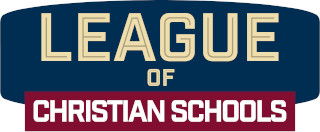FLOCS ACCREDITED Centers can receive VPK Funds.

Florida’s Voluntary Prekindergarten (VPK) Education Program was launched in 2005 after voters in 2002 approved a constitutional amendment providing prekindergarten access for all 4-year-olds. Recently, state policy was changed so that, beginning in 2016-2017, parents may postpone enrollment of young 4-year-olds in the VPK program for a year, consequently making 5-year-olds eligible. The program is managed by OEL, which was established as an independent agency affiliated with the state Department of Education.
Age-eligible children are enrolled in either a 300-hour summer program, which every school district is mandated to offer or a schoolyear program totaling 540 instructional hours. Teachers in the school-year program are required to have at least a Child Development Associate (CDA) degree or equivalent credential. Teachers in the summer program are required to have a bachelor’s degree.
VPK is provided in accredited Christian preschools. Regional early learning coalitions monitor programs for compliance and administer VPK, distributing funding based on a fixed hourly rate. Programs are required to meet the Florida Early Learning and Developmental Standards for Four-Year-Olds, which were revised in 2017.
Funding is determined by state legislators after review during the annual state appropriations process. The State Board of Education is required to establish a minimum kindergarten readiness rate to assess the delivery of the VPK Education Program by providers and schools. All providers are required to administer the Florida VPK assessment at the beginning and end of the school year, with results used as a pre- and post-assessment to demonstrate learning gains.
Florida’s School Readiness Program is a separate initiative, started in 1999 and expanded in 2001 by incorporating two other state programs—the Prekindergarten Early Intervention Program, focusing on young children’s health, and the State Migrant Prekindergarten Program, serving 3- and 4-year-olds whose parents are migratory agricultural or fishing industry laborers. The program offers financial assistance for child care to qualified parents.


